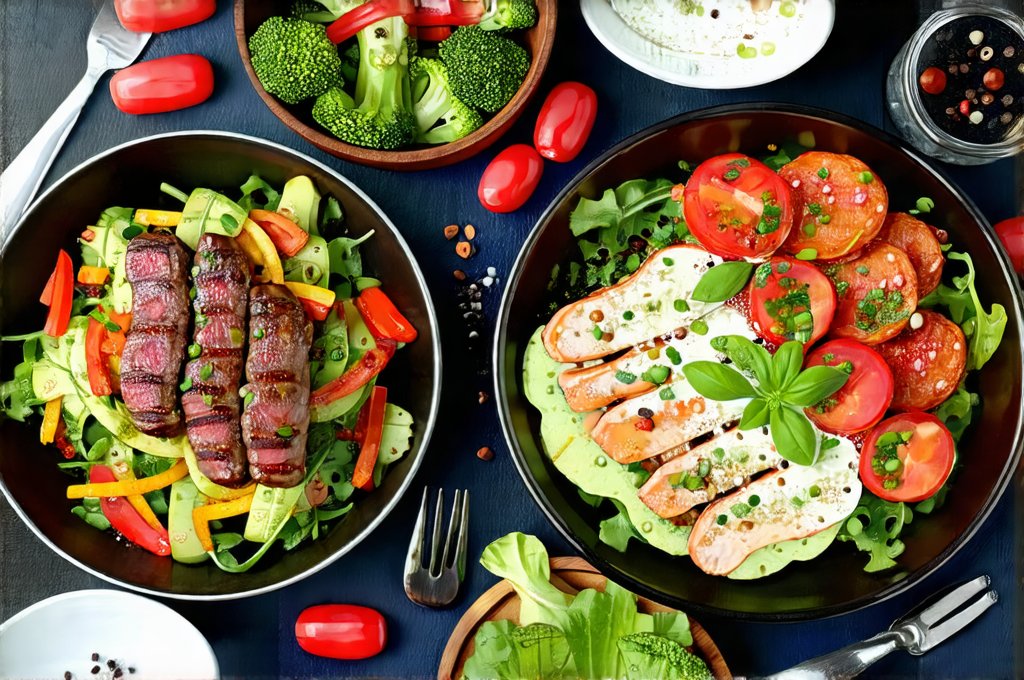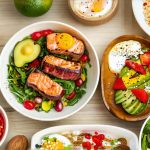Our gut microbiome – the trillions of bacteria, fungi, viruses and other microorganisms living in our digestive tract – plays an astonishingly large role in overall health. It impacts everything from digestion and nutrient absorption to immune function, mental wellbeing, and even chronic disease risk. While a consistently healthy diet is fundamental for supporting this internal ecosystem, it’s often during weekends when routines slip and less-than-ideal food choices creep into our meals. Planning a gut-friendly weekend menu isn’t about strict deprivation; it’s about making mindful choices that nourish your microbiome while still enjoying delicious and satisfying food. It’s about proactively supporting your body rather than reacting to digestive discomfort after the weekend is over.
Many people associate “gut health” with complicated diets or expensive supplements, but often the most significant improvements come from simple dietary adjustments focusing on whole foods. This means prioritizing fiber-rich produce, fermented foods, and minimizing processed ingredients. A gut-friendly approach isn’t about eliminating entire food groups unless medically necessary; it’s about balance and incorporating foods that feed beneficial bacteria while reducing those that can disrupt the delicate microbial ecosystem. The goal is to create a weekend of nourishment – both for your body and your tastebuds – setting you up for a healthier, more energized week ahead.
Building Blocks of a Gut-Friendly Weekend
The foundation of any gut-friendly menu lies in understanding which foods actively support a diverse and thriving microbiome. Fiber is arguably the most important element, acting as prebiotic food for beneficial bacteria. These bacteria then ferment the fiber, producing short-chain fatty acids (SCFAs) like butyrate, propionate, and acetate – crucial compounds that nourish colon cells, reduce inflammation, and strengthen the gut barrier. Fermented foods introduce probiotics – live microorganisms that can directly contribute to microbiome diversity. Finally, minimizing processed foods, excessive sugar, and artificial sweeteners helps prevent dysbiosis—an imbalance in the gut microbiota.
Focusing on whole food groups is a great starting point: Include plenty of fruits and vegetables (especially those with edible skins), legumes, whole grains like oats or quinoa, nuts and seeds, and lean protein sources. Don’t be afraid to experiment with different types of fiber-rich foods, as variety promotes diversity in the gut microbiome. Think beyond apples and bananas; explore things like artichokes, asparagus, jicama, and dandelion greens. Fermented food options are also diverse – from yogurt and kefir (choose plain, unsweetened varieties) to sauerkraut, kimchi, kombucha, and even traditionally fermented pickles. If you’re struggling with the process of eating again, consider how to handle the fear.
A key element of successful planning is thinking ahead about potential pitfalls. Weekends often involve eating out or grabbing convenience foods. Consider how you can make healthier choices when faced with these situations – opting for salads with grilled protein instead of fried options, choosing whole-grain bread over white, or bringing a small container of fermented food to add to your meal. Preparation is key! Doing some grocery shopping and basic prep work on Friday evening will set you up for success throughout the weekend. If you are planning ahead after a cancer diagnosis, this proactive approach is even more valuable.
Breakfast: Kickstarting Gut Health
Breakfast often sets the tone for the entire day, so starting with a gut-friendly option can be incredibly beneficial. Avoid sugary cereals, pastries, and processed breakfast bars that offer little nutritional value and can feed harmful bacteria. Instead, focus on options that provide fiber, probiotics, and healthy fats.
- Overnight oats are an excellent choice: Combine rolled oats, chia seeds (a great source of fiber), plant-based milk or yogurt, and a sprinkle of berries. Allow it to sit overnight for the oats to soften and become creamy. You can add a dollop of nut butter for extra protein and healthy fats.
- Greek yogurt with berries and granola: Opt for plain, unsweetened Greek yogurt (which contains probiotics) topped with fresh or frozen berries and a small amount of homemade granola made with whole grains and nuts.
- Smoothie with fermented ingredients: Blend spinach, banana, plant-based milk, a spoonful of kefir or yogurt, and a tablespoon of flax seeds. This provides fiber, probiotics, and essential nutrients.
Consider adding prebiotic foods to your breakfast as well. A sprinkle of cinnamon on your oatmeal or a few slices of banana in your smoothie can help feed beneficial bacteria. Remember to listen to your body; some people may find certain high-fiber foods cause bloating or discomfort. Start slowly and gradually increase fiber intake over time. You might also want to test for sensitivities before introducing new foods.
Lunch: Sustained Energy & Digestion
Lunch is often the most challenging meal to maintain gut health during a weekend, as it’s frequently eaten on the go or at restaurants. Planning ahead can help you navigate these situations effectively. Pack a lunch if possible, focusing on whole foods and avoiding processed options. If eating out, make mindful choices that prioritize fiber and minimize inflammatory ingredients.
- Large salads with lean protein: Build a salad base with mixed greens, spinach, or kale, then add grilled chicken or fish, chickpeas, lentils, or quinoa for protein. Top it off with avocado for healthy fats and a simple vinaigrette dressing made with olive oil and lemon juice.
- Leftovers from dinner: This is an excellent way to reduce food waste and ensure you’re getting a gut-friendly meal.
- Whole-grain wraps with hummus and vegetables: Choose whole-wheat or gluten-free wraps filled with hummus (a source of fiber), sliced vegetables like cucumber, carrots, and bell peppers, and a small amount of lean protein.
Avoid heavy, greasy foods that can disrupt digestion. Limit processed meats, sugary drinks, and refined carbohydrates. If you’re dining out, ask for modifications – such as swapping fries for a side salad or choosing grilled instead of fried options. Don’t be afraid to request dressings on the side so you can control the amount used. It may also be helpful to train your gut for better tolerance over time.
Dinner: Nourishment & Repair
Dinner is an opportunity to really nourish your gut microbiome with a satisfying and balanced meal. Focus on incorporating plenty of fiber-rich vegetables, lean protein, and healthy fats. This is also a great time to include fermented foods as part of the meal.
- Baked salmon with roasted vegetables and quinoa: Salmon is rich in omega-3 fatty acids which have anti-inflammatory properties. Combine it with a variety of roasted vegetables like broccoli, Brussels sprouts, and sweet potatoes, along with a side of quinoa for fiber and protein.
- Lentil soup with whole-grain bread: Lentils are an excellent source of fiber and plant-based protein. Serve with a slice of whole-grain bread for dipping.
- Chicken stir-fry with brown rice and kimchi: Use plenty of colorful vegetables in your stir-fry, such as broccoli, carrots, peppers, and onions. Add a side of fermented kimchi to support gut health.
Consider preparing larger portions so you have leftovers for lunch the next day. Avoid eating late at night, as this can disrupt digestion. If you do eat close to bedtime, choose lighter options that are easier to digest. Understanding when food is no longer safe is also vital for food safety. Finally, remember to consider a liver-friendly meal plan when planning your meals!


















